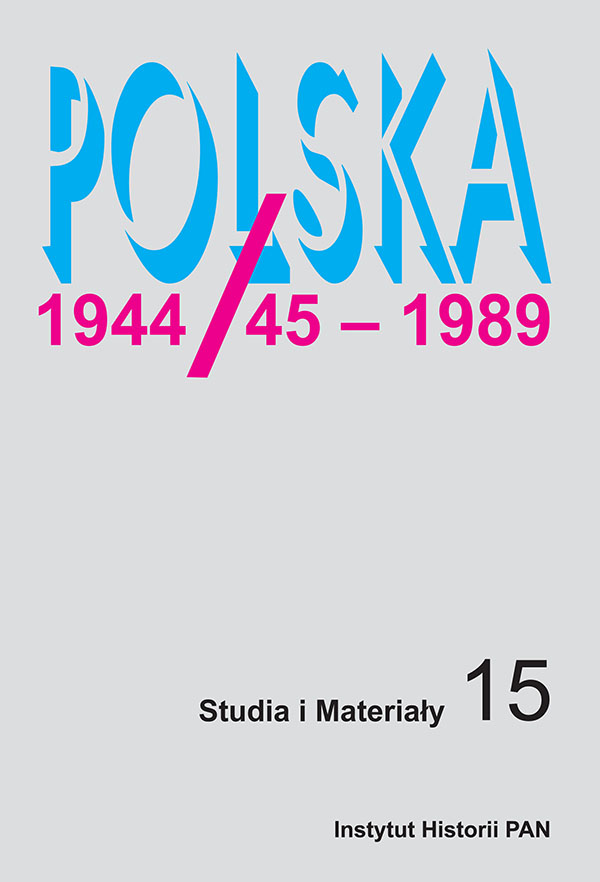Prawno-społeczna pozycja felczera w Polsce w latach 1945–1989
Legal and social position of the feldsher in Poland in 1945–1989
Author(s): Paweł FiktusSubject(s): History of Law, Political history, Social history, Recent History (1900 till today), WW II and following years (1940 - 1949), Post-War period (1950 - 1989)
Published by: Instytut Historii im. Tadeusza Manteuffla Polskiej Akademii Nauk
Keywords: feldsher; health care in Polnad;medical activities;medical education in Poland
Summary/Abstract: With the end of the Second World War, the feldsher’s profession was regulated by legal acts dating back to the interwar period. The leading act was the Act of 1 July 1921, on the feldsher’s profession, which briefly defined the feldsher’s qualifications. The key legal act regulating the legal position of feldsher was a law passed by the Legislative Sejm on 20 July 1950, on the feldsher’s profession. The feldsher’s powers were divided into two groups: activities performed independently (that is, in feldsher’s points and non-public health care institutions) as well as activities carried out non-independently – that is, under the guidance of a physician. The issues related to professional secrecy and disciplinary liability were regulated separately. Trying to determine the feldsher’s position in the system at that time, during the legislative work, it was recognized that it would be a profession between a doctor and a nurse. The reason for the adoption of such a solution was the possibility of performing small independent treatments, to whose performance a nurse was not authorized. Initially, the feldsher’s profession enjoyed the great interest of those willing to practice the profession. At this time, medical publications often presented the social advancement of feldsher school students, who continued their medical education after graduation. However, the interest in the feldsher’s profession gradually began to decline and the school year 1962/1963 was the last period of the feldsher’s education in Poland. The last feldsher school functioned then in Warsaw. From this moment on, the feldsher’s profession was left to its own devices. Since 1956, the feldsher’s qualifications have been extended to the possibility of working in sobering stations. Further powers were awarded to the feldsher in the 1960s, including issuing death certificates, diagnosing venereal diseases during medical examinations in sobering stations, and the inclusion of this profession in the fight against infectious diseases. In the case of the feldsher’s profession, the issues of a prestigious nature, such as the introduction of appropriate decorations similar to those of the physician or nurse, for instance long-term seniority, were also omitted. The feldsher’s profession was recalled when Poland entered the European Union structures, which led to the introduction of a new regulation in 2005 regulating the scope of activities to which the feldsher was qualified.
Journal: Polska 1944/45 - 1989
- Issue Year: 2017
- Issue No: 15
- Page Range: 127-148
- Page Count: 22
- Language: Polish

